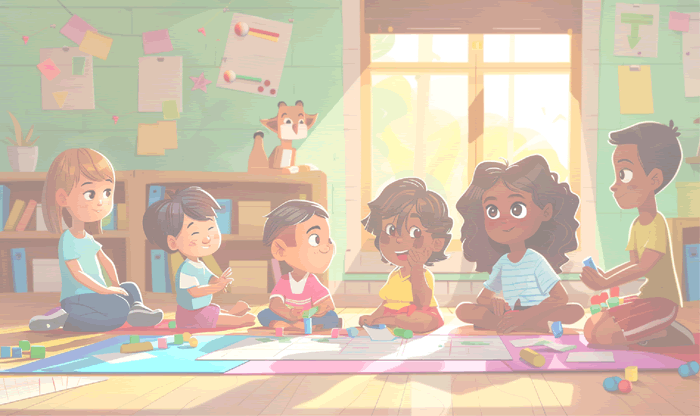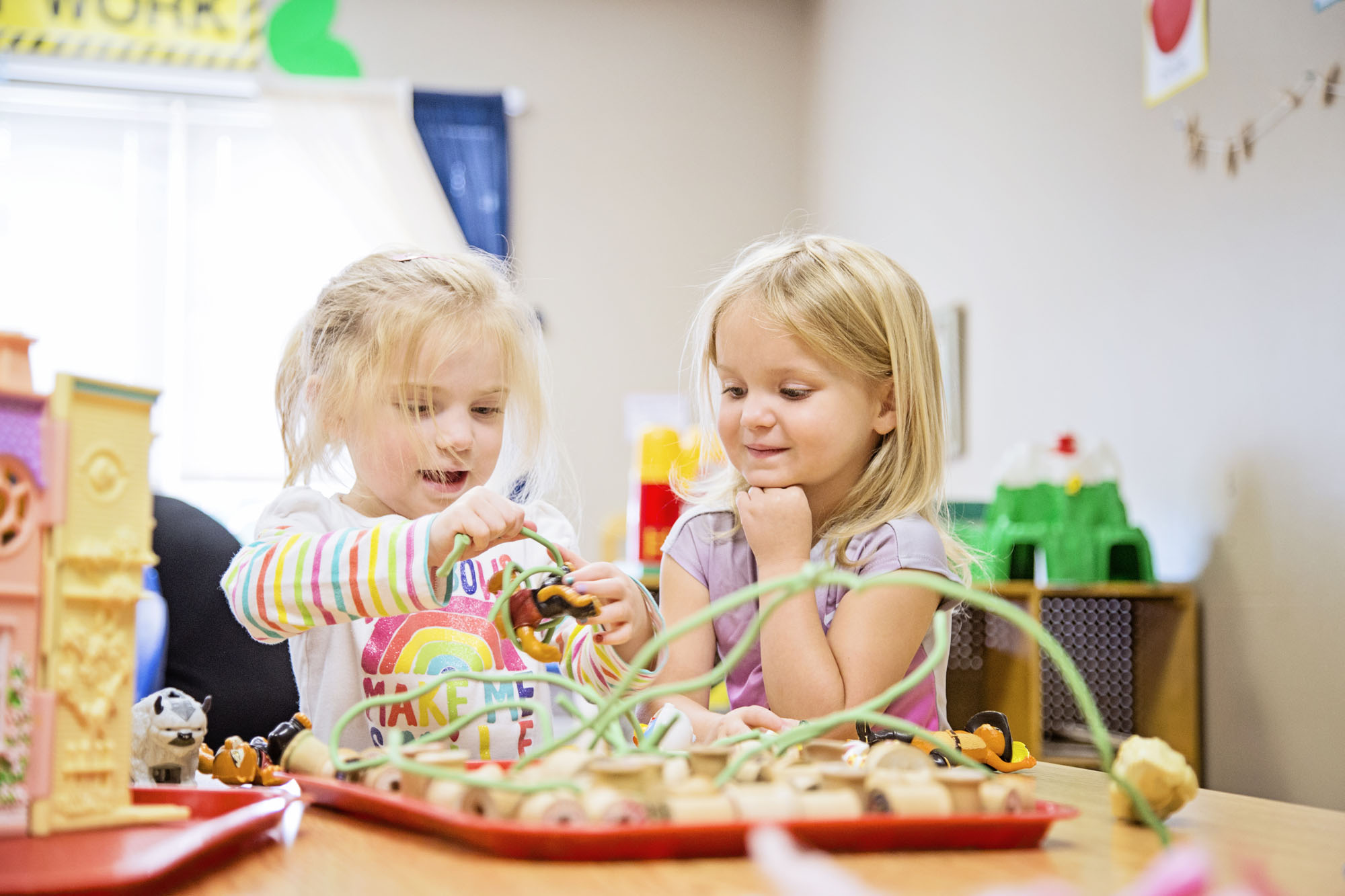Game-based education that engages Private School learners
Wiki Article
The Relevance of Interactive Activities in Quality Institution Education
Interactive activities play a crucial duty in elementary school education and learning. They involve trainees and improve discovering results. With team tasks and hands-on experiments, students experience the material in a sensible means. This approach provides to diverse discovering designs and advertises crucial skills. The advantages prolong beyond academics. Exploring the much deeper impact of these activities reveals their value in shaping young students' futures. What changes take place when trainees proactively get involved?Enhancing Involvement Through Interactive Learning
Although conventional mentor approaches have their benefits, interactive understanding significantly improves trainee interaction in grade college education and learning. This strategy motivates energetic involvement, enabling trainees to immerse themselves in the knowing procedure. By making use of team tasks, hands-on experiments, and technology-driven sources, teachers create an atmosphere where students really feel extra attached to the product.Interactive discovering promotes cooperation amongst peers, cultivating communication abilities and synergy. It additionally deals with varied knowing styles, ensuring that aesthetic, auditory, and kinesthetic learners can all grow. Trainees are extra most likely to maintain details when they actively take part, as opposed to passively receiving expertise.
This dynamic approach not only makes learning enjoyable yet also imparts a sense of ownership in trainees concerning their educational journey. As they engage with the web content, their inquisitiveness and motivation to discover increase, laying a strong structure for future academic success.
Establishing Critical Believing Abilities
Interactive learning not just boosts interaction however likewise functions as a stimulant for creating critical thinking skills in grade college trainees. Via tasks such as problem-based understanding, disputes, and hands-on experiments, pupils are encouraged to evaluate details, evaluate different viewpoints, and create reasoned conclusions. These interactive experiences require trainees to doubt presumptions, leading them to think more deeply regarding numerous subjects.
Interactive tasks frequently present real-world scenarios that test trainees to use their understanding creatively. By maneuvering with these difficulties, they discover to determine pertinent information and make informed choices. This procedure cultivates not just specific critical reasoning yet also motivates trainees to articulate their assumed processes, enhancing their ability to connect properly. As an outcome, interactive discovering atmospheres cultivate a generation of essential thinkers that are much better prepared to tackle intricate problems in their future academic and professional ventures.
Cultivating Cooperation Amongst Peers
Promoting cooperation amongst peers is essential in quality school education, as it enhances synergy and communication skills. Engaging in team activities helps pupils construct trust fund and respect for one another, laying the groundwork for efficient collaboration. Problem-solving with each other enables students to find out from each other and establish a cumulative approach to challenges.Teamwork and Communication Skills
Efficient team effort and communication skills are vital elements of an effective elementary school education and learning. Taking part in interactive activities motivates students to work together, share concepts, and address problems with each other. Such experiences advertise the development of important interaction capacities, allowing kids to express their thoughts plainly and pay attention proactively to others. With team effort, trainees learn to appreciate diverse point of views, fostering a sense of area and shared responsibility. Structured team jobs, whether in academics or innovative jobs, improve peer communications, teaching youngsters exactly how to negotiate functions and solve disputes. Consequently, these skills not only contribute to a positive classroom setting but also prepare trainees for future joint ventures in greater education and learning and the office. On the whole, teamwork and interaction are fundamental to all natural development in elementary school.Building Trust Fund and Respect
Building count on and regard among peers acts as a keystone for successful cooperation in elementary school settings. When trainees feel valued and respected by their schoolmates, they are most likely to involve actively in group activities. Interactive activities, such as group tasks and participating games, offer opportunities for trainees to gain from each other, cultivating a feeling of community. This atmosphere encourages open interaction, permitting trainees to express their ideas and point of views without concern of judgment. As trust constructs, trainees become a lot more going to share responsibilities and sustain each other's learning. Eventually, cultivating an ambience of trust and respect boosts not only scholastic outcomes yet also social growth, equipping students with essential interpersonal skills for their future endeavors.Problem-Solving With each other
Collaborative analytical engages trainees in vital reasoning and team effort, important abilities for their personal and scholastic development. When students interact to deal with challenges, they find out to communicate efficiently, regard diverse viewpoints, and leverage each other's staminas. This procedure enhances their ability to examine troubles from various angles and develop creative options. Group activities, such as scientific research experiments or math obstacles, advertise active engagement and foster a sense of neighborhood. As pupils collaborate, they also develop social skills, discovering to endanger and bargain, which are crucial for future communications. Eventually, analytic with each other grows a helpful knowing atmosphere, equipping trainees to take ownership of their education and learning while preparing them for joint undertakings past the classroom.Motivating Creative Thinking and Innovation
Encouraging creativity and development in elementary school education and learning can be substantially improved through hands-on learning experiences. These activities allow students to involve directly with products and concepts, promoting creative thinking. Additionally, joint group tasks can boost diverse concepts and services, better supporting a creative setting.Hands-On Understanding Experiences
A multitude of hands-on learning experiences greatly boosts imagination and innovation in grade school education and learning. Involving trainees in useful activities permits them to apply academic understanding in real-world contexts, cultivating deeper understanding. By controling materials and devices, youngsters develop important problem-solving skills and find out to believe outside package. These experiences influence inquisitiveness and inspire trainees to discover their rate of interests better. In addition, hands-on activities can bridge different topics, linking scientific research, art, and mathematics in meaningful methods. This interdisciplinary strategy encourages trainees to see links and believe artistically. Eventually, hands-on understanding experiences support a generation of trendsetters, outfitting them with the skills and confidence required to deal with future challenges and add to culture in special means.Collaborative Team Projects
Hands-on knowing experiences normally result in the consolidation of joint group projects, which play an important role in fostering creativity and technology in grade school education. find out These projects urge students to function together, sharing ideas and point of views, which boosts analytic skills and critical thinking. Through collaboration, trainees discover to interact efficiently and regard varied viewpoints, important abilities for their future. Furthermore, team projects offer chances for trainees to trying out different roles, increasing their adaptability and confidence. Engaging in this participating setting allows them to discover their creative thinking, pushing the boundaries of typical knowing. Ultimately, collective team projects not only enhance the academic experience however likewise prepare trainees for real-world obstacles that need team effort and innovative thinking.Building Self-confidence and Independence
As pupils involve in interactive activities, they typically discover chances to develop confidence and freedom. These tasks, whether they involve hands-on projects, role-playing, or analytic tasks, encourage trainees to take effort and express their concepts freely. By getting involved in such experiences, students find out Website to trust their capabilities and choose without depending solely on advice from peers or teachers.Moreover, interactive tasks promote a sense of ownership over learning. They establish crucial believing abilities and durability when pupils tackle difficulties collaboratively or individually. This procedure not only boosts their understanding of the subject however additionally empowers them to take threats in their discovering trip.
As they browse various interactive scenarios, trainees progressively dropped their insecurity, leading the way for boosted self-confidence - Private School. Inevitably, these tasks play an essential function in supporting independent and confident learners, equipped to deal with future scholastic and individual obstacles
Developing a Positive Class Atmosphere
While fostering a favorable classroom setting is necessary for reliable understanding, it requires intentional effort from educators to develop a space where students feel safe, revered, and involved. A positive atmosphere motivates partnership, allowing trainees to reveal themselves without concern of judgment.Educators can accomplish this by developing Check Out Your URL clear expectations, advertising common regard, and acknowledging individual contributions. Integrating interactive activities better improves interaction, making finding out a lot more enjoyable and vibrant.
Furthermore, a nurturing setting sustains social-emotional growth, as pupils find out to navigate relationships and deal with disputes. Teachers play an essential duty in modeling positive behavior and enhancing a society of generosity and inclusivity.
Often Asked Concerns

Just How Can Moms And Dads Assistance Interactive Discovering in your home?
Parents can support interactive learning in the house by supplying appealing materials, motivating hands-on jobs, including educational games, cultivating conversations, and producing a nurturing atmosphere that promotes curiosity and expedition in their kids's learning experiences. (Private School)What Types of Interactive Tasks Are Most Reliable?
Hands-on projects, collective video games, role-playing scenarios, and instructional innovation applications are among the most reliable interactive activities. These involve students, enhance critical assuming skills, and advertise team effort, ultimately promoting a deeper understanding of various topics.Just How Do Interactive Activities Deal With Various Knowing Styles?
Interactive activities involve visual, auditory, and kinesthetic learners by including diverse approaches. These activities help with understanding with hands-on experiences, collaborative discussions, and aesthetic help, allowing trainees to soak up information according to their preferred understanding style.What Are the Expenses Related To Implementing Interactive Activities?

Carrying out interactive activities incurs expenses such as products, training for instructors, technology upgrades, and possible facility alterations. Spending plan constraints can additionally impact the frequency and variety of activities used to pupils in educational setups.
Just How Can Teachers Analyze the Influence of Interactive Knowing?
Teachers can assess the impact of interactive knowing through observations, pupil comments, performance metrics, and comparative analysis of examination ratings before and after application, ensuring a complete understanding of engagement and expertise retention improvements.With activities such as problem-based understanding, arguments, and hands-on experiments, trainees are urged to analyze information, assess different point of views, and formulate reasoned conclusions. Interactive tasks often present real-world scenarios that test students to apply their understanding artistically. Involving in interactive tasks urges students to collaborate, share concepts, and fix problems together. Interactive tasks, such as group projects and cooperative games, supply chances for trainees to learn from one another, cultivating a sense of community. As students involve in interactive tasks, they usually discover opportunities to build self-confidence and self-reliance.
Report this wiki page